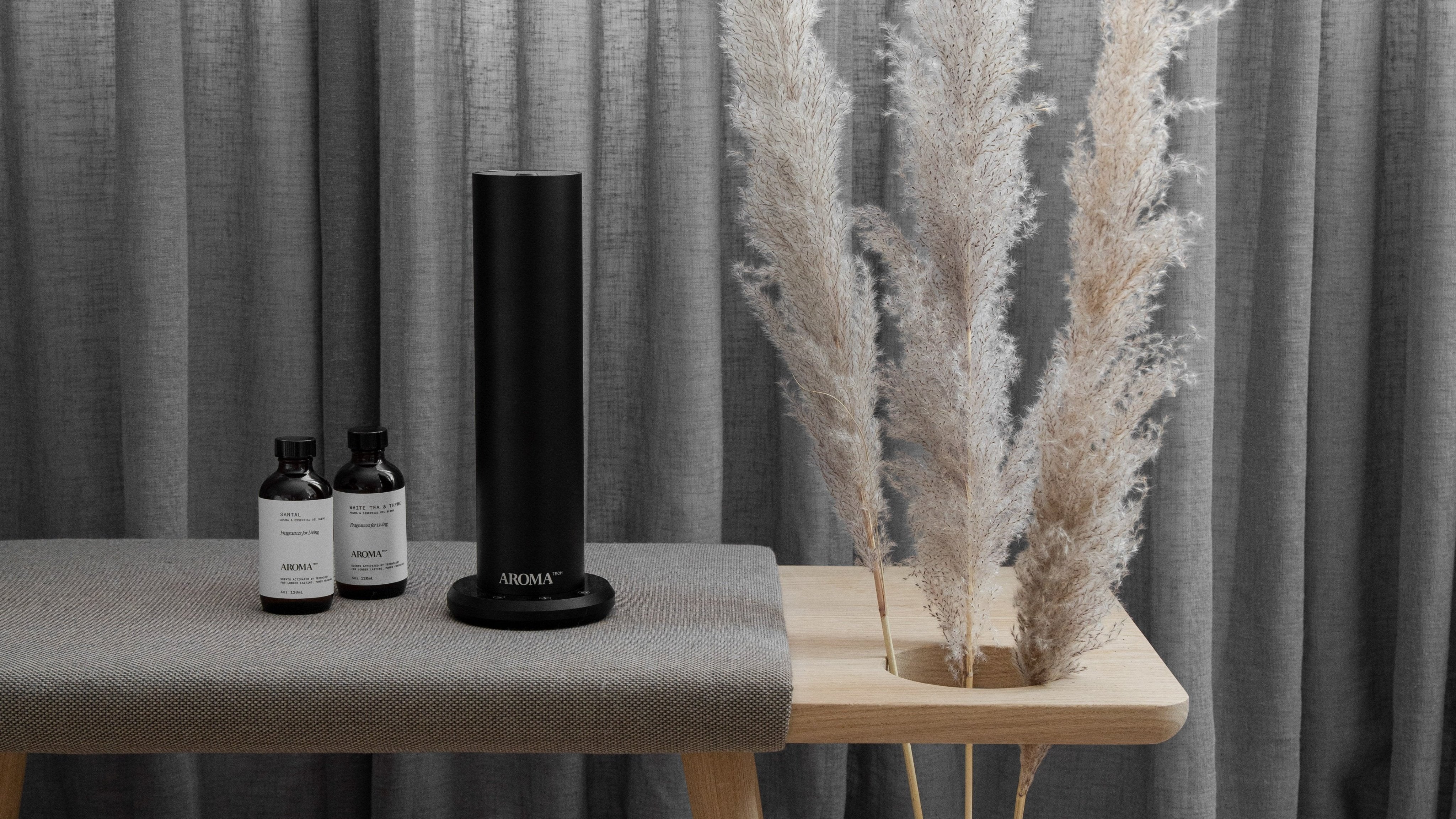
Reed Diffusers vs Electric Oil Diffusers: Pros and Cons
Many people new to the world of essential and aromatic oils are curious about the different methods of diffusing these oils in their home or business. Two of the most popular ways of diffusing essential oils are by using a reed diffuser or an electric oil diffuser. While both types of diffusers get the job done, they also each have their distinct pros and cons. That’s why we wanted to write a full guide to the benefits and drawbacks of each scenting method.
By the end of this article, you’ll be able to decide whether a reed diffuser or an electric oil diffuser is the best fit for scenting your home or business. Before we get started though, let’s make sure we’re clear on the key differences between reed diffusers and electric oil diffusers.
What Is A Reed Diffuser?
Reed diffusers feature a fragrance oil and base solution mixed together inside of a glass bottle with a narrow neck. Rattan reeds or sticks are then inserted to the liquid, and left sticking out from the bottle. These reeds absorb the fragrant liquid from inside the bottle and diffuse it into the air of the room. A reed diffuser continues to release scent throughout the lifespan of the reeds and fragrance oil in the bottle.
What Is An Electric Oil Diffuser?
As the name implies, electric oil diffusers still diffuse essential oils into the air, but don’t feature any reeds, and are instead powered by electricity. Unlike reed diffusers, there are several different types of electric oil diffusers on the market.
The four main ones are:
Cold-Air Diffusers
Cold-Air Diffusers work by using pressurized air to diffuse a pleasant mist of the aroma of your choice. Unlike the other options below, these diffusers don’t require water or heat, and thus are the most low-maintenance choice. Cold-Air Diffusers are plastic-free, and because they don’t require diluting or heating, they ensure the oil is diffused in its purest state.
Ultrasonic or Humidifying Diffusers
In these diffusers, the essential oil is diluted with water before diffusion, and then ultrasonic vibrations are used to break up the molecules into a fine mist. These types of diffusers will require regular cleaning as the oils can be corrosive to their plastic parts.
Evaporative Diffusers
In evaporative diffusers, a small fan helps transform the oil into a gaseous state, then releases it into the air. The drawback with this method is that as the oil evaporates, it can lose some of its initial potency.
Heat Diffusers
With heat diffusers, electric heat is used to evaporate the oil into the air. However, heating an oil can change its chemical properties and potency, making it more or less intense depending on the oil in question.
Now that we understand the differences between reed diffusers and electric ones, as well as the different approaches to electric diffusion, let’s look at the pros and cons of both reed diffusers and electric diffusers when it comes to scenting your space.
Reed Diffusers: Pros
The nice thing about reed diffusers is that they are likely the most low-maintenance approach to diffusion out there. This is because they don’t require electricity, heat, fans, machines, etc. All you need is the reeds, their bottle/container, and the fragrance oil.
Another advantage is that reed diffusers provide a constant, hassle-free stream of scent. They don't need to be turned on or off, lit, or blown out. Rather, they simply diffuse the oil that’s in their container until it runs out. Typically, it takes a few months for the fragrance in the bottle to run out completely, meaning they can also be long-lasting.
Reed Diffusers: Cons
Interestingly, the “constant scent” advantage of reed diffusers is also their biggest disadvantage. If you’re out of town or out of the house for most your day, your scent may go largely unappreciated, diffused throughout an empty home, since there’s no way to turn off a reed diffuser.
Since reed diffusers are constantly diffusing, you also can’t fine-tune and control the level of fragrance being scented the way you can with a high end electric diffuser. This means that depending on the size of the room, some reed diffusers can be either overpowering, or go completely unnoticed.
Electric Oil Diffusers: Pros
The key advantage of a high quality electric diffuser is that they allow you to control the intensity of the fragrance being released. Some electric diffusers may also have timers, so that you can set the diffuser to only diffuse at a time that suits you. Our Aromini and Aromini BT models even allow you to start and stop diffusion on your phone via bluetooth. Simply put, an electric diffuser offers you much more control over the intensity and duration of your fragrance.
Electric Oil Diffusers: Cons
A high quality electric diffuser will typically be more expensive than a reed diffuser. Another drawback is that because there are so many different types of electric diffusers on the market, quality varies widely. Cheap heat diffusers and ultrasonic diffusers can dilute and damage the chemical structure of a high quality oil, resulting in a less-than-ideal scenting experience. For this reason, we always recommend nebulizing, cold-air scent diffusers. This diffusion method disperses the oil in its purest state, and so our own diffusers exclusively utilize this nebulizing cold-air technology.
Summary | The Final Verdict
Both reed diffusers and electric diffusers have their place, and their own unique set of benefits. Reed diffusers are unique in that they can diffuse scent constantly, all without requiring heat or electricity to power them.
However, you can’t control the intensity of fragrance as easily as you can with electric diffusers, especially high-quality, cold-air diffusers. For this reason, we favor electric diffusers, as they offer you greater control, and the ability to dial in the level of fragrance to your exact specifications. This way, you can get the perfect scenting experience and scent intensity for your home, business, or other space.
To read more about our cold-air diffusers and diffusion technology, check out our Scent Diffuser Collection in the AromaTech store.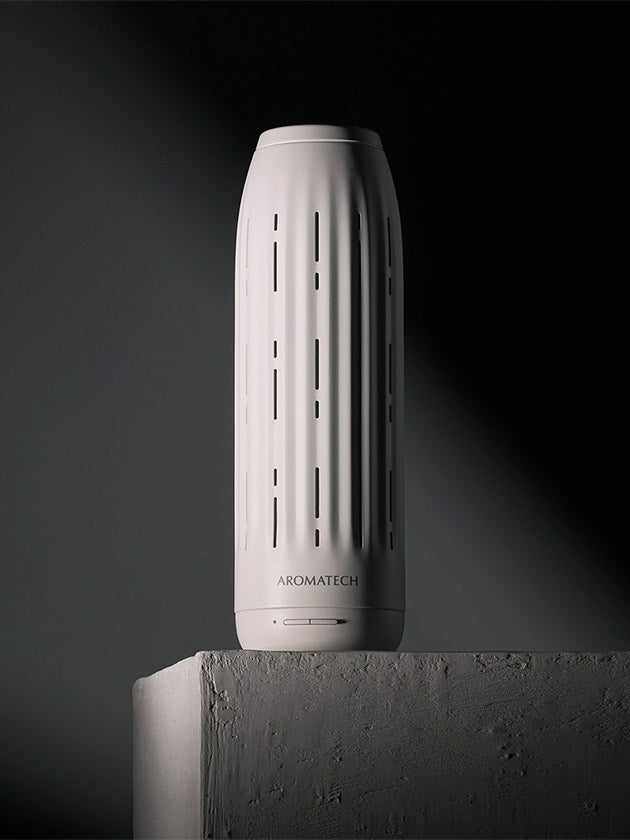
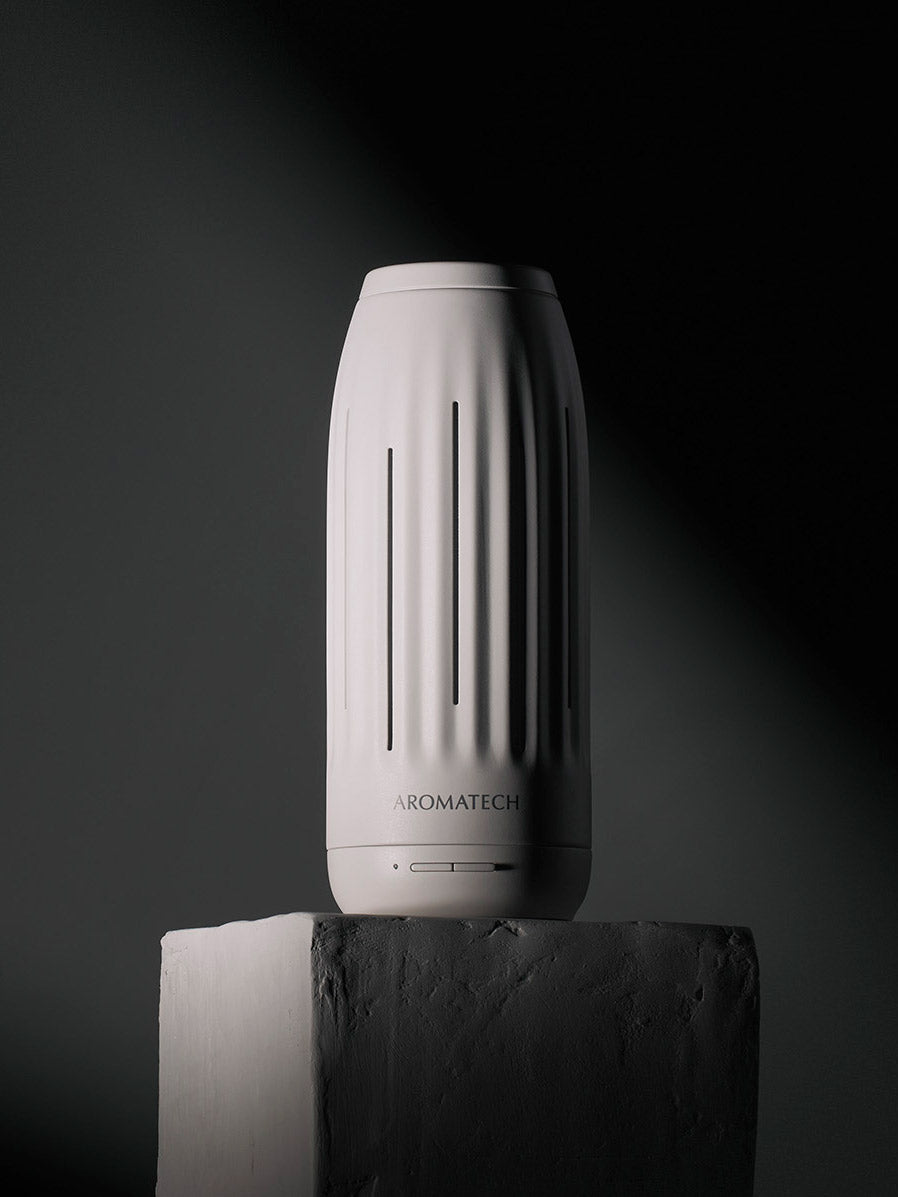
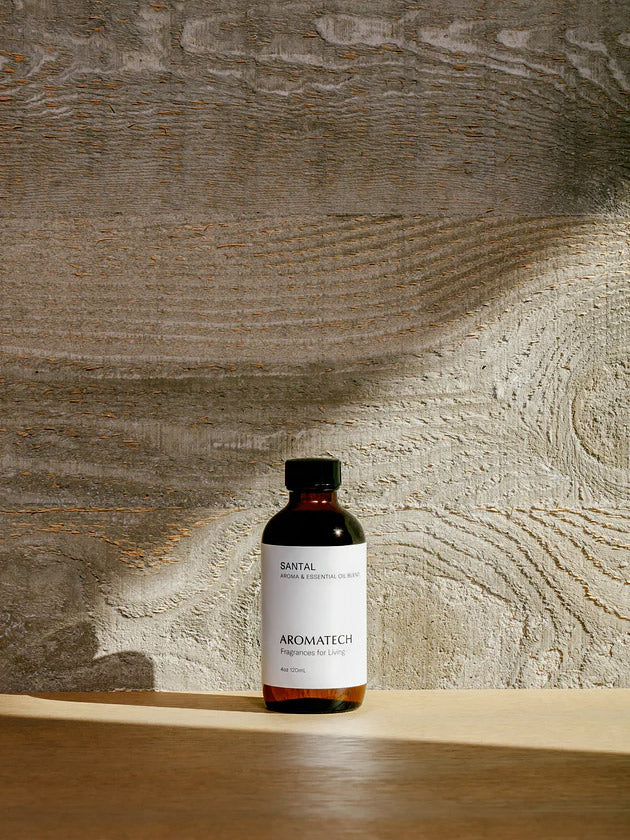
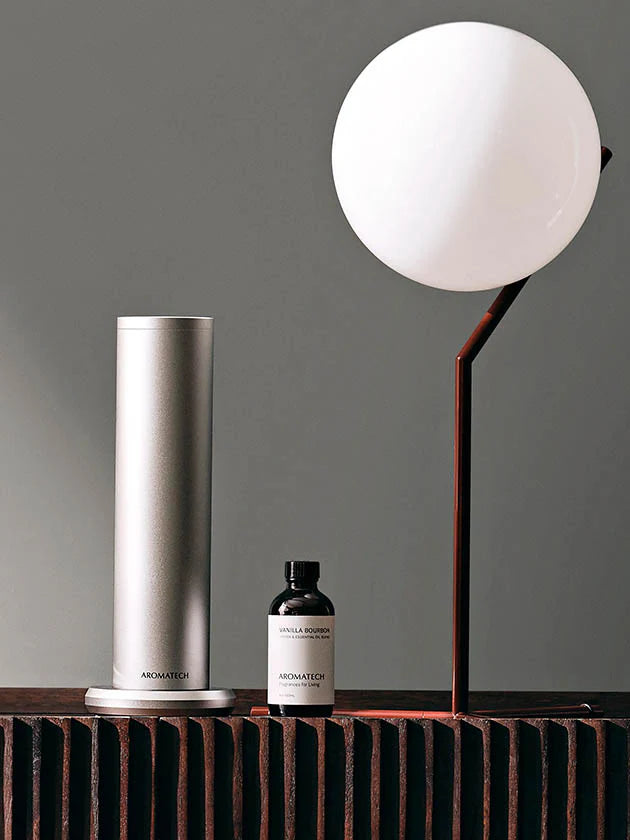

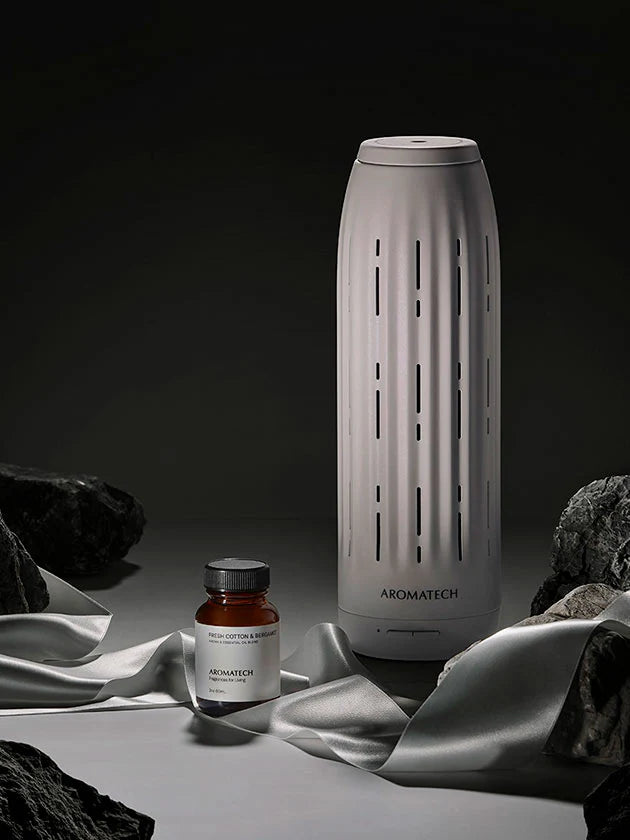
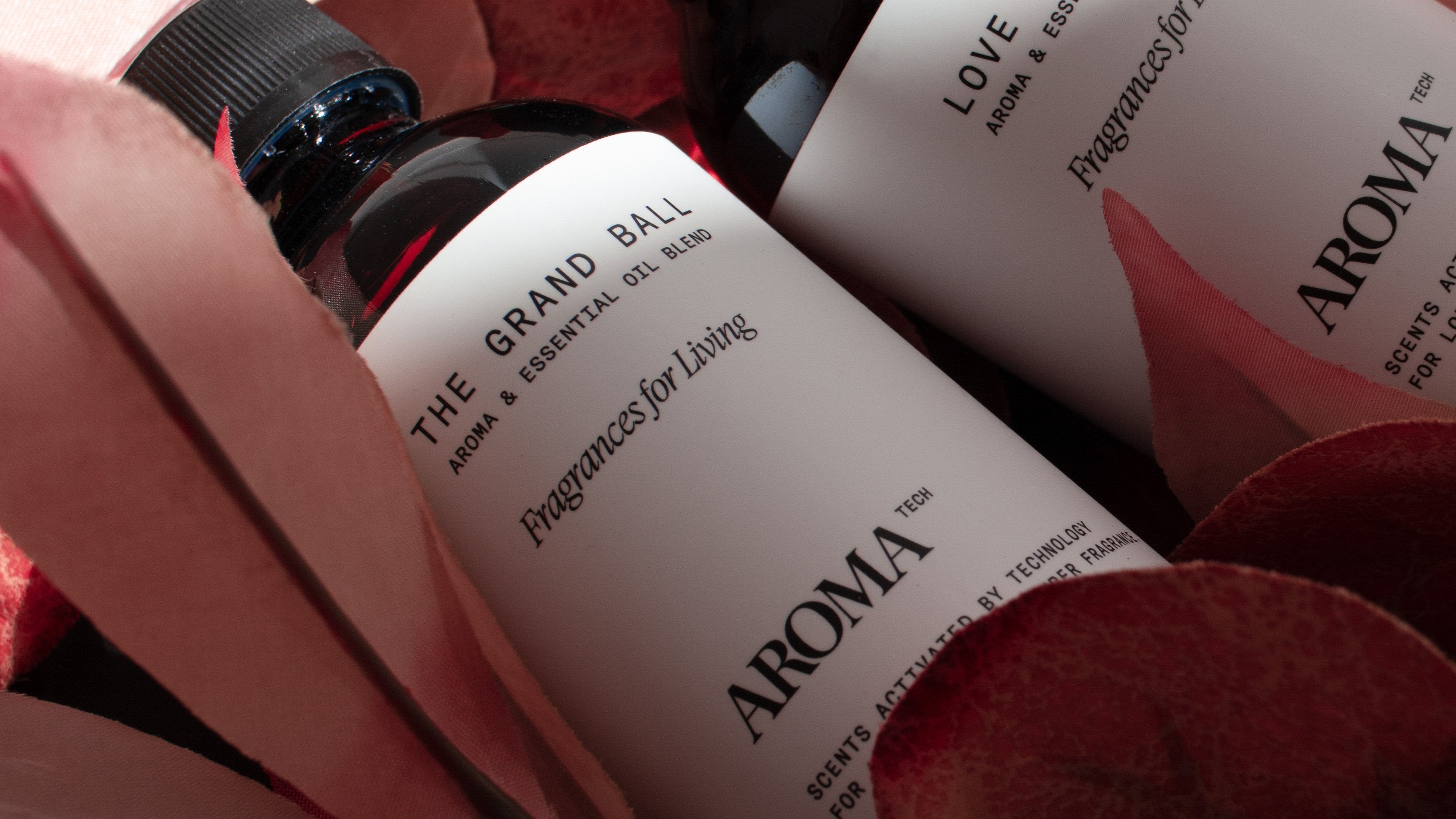

Leave a comment
This site is protected by hCaptcha and the hCaptcha Privacy Policy and Terms of Service apply.